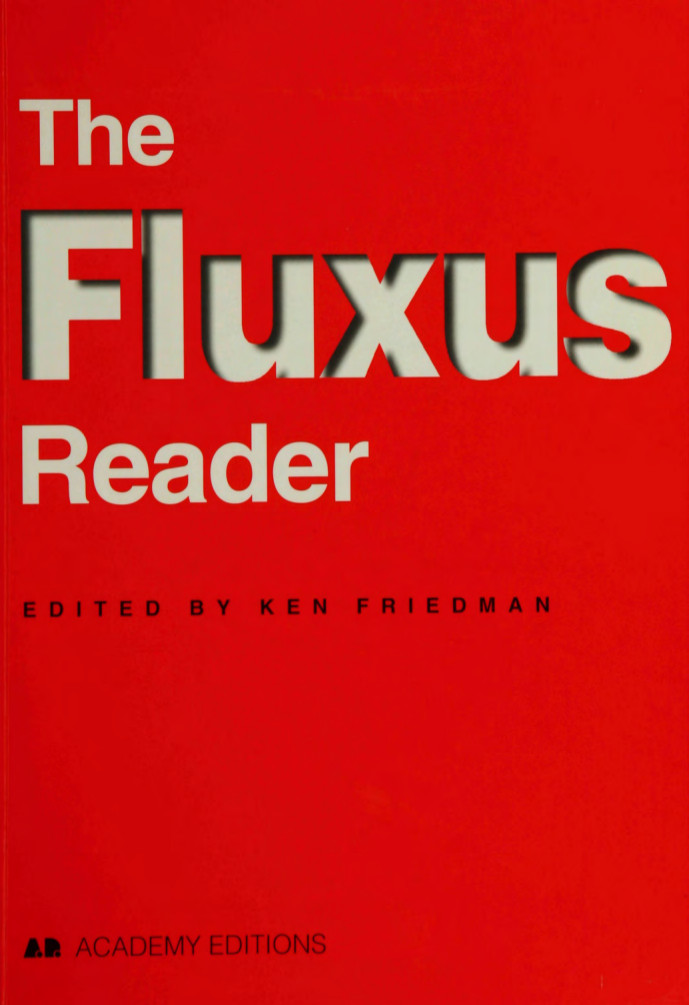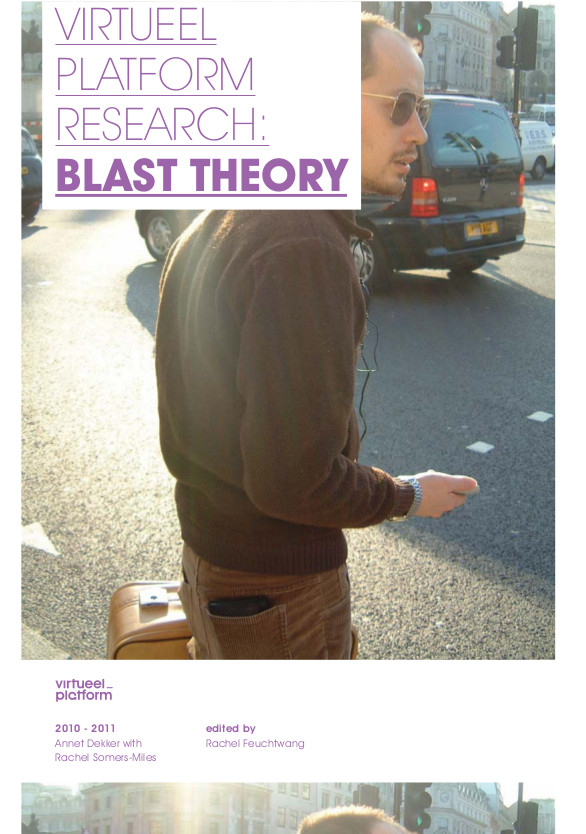Ken Friedman (ed.): The Fluxus Reader (1998)
Filed under book | Tags: · 1950s, 1960s, aesthetics, art, avant-garde, fluxus

“Fluxus began in the 1950s as a loose, international community of artists, architects, composers and designers. By the 1960s, Fluxus has become a laboratory of ideas and an arena for artistic experimentation in Europe, Asia and the United States. Described as ‘the most radical and experimental art movement of the 1960s’, Fluxus challenged conventional thinking on art and culture for over four decades. It had a central role in the birth of such key contemporary art forms as concept art, installation, performance art, intermedia and video. Despite this influence, the scope and scale of this unique phenomenon have made it difficult to explain Fluxus in normative historical and critical terms. The Fluxus Reader offers the first comprehensive overview on this challenging and controversial group. It is written by leading scholars and experts from Europe and the United States.”
Publisher Academy Editions, UK, 1998
Creative Commons Attribution CC-BY 3.0 Unported licence
ISBN 0471978582, 9780471978589
309 pages
The version of the text provided for download here contains updates on the original 1998 edition.
via Joseph Nechvatal
Reviews: Elizabeth Beckman and Jonathan Applefield (Art J, 1999), Beáta Hock (Artpool, n.d.).
PDF (37 MB, updated on 2012-7-30)
PDF chapters
Manuel DeLanda: Philosophy and Simulation: The Emergence of Synthetic Reason (2011)
Filed under book | Tags: · algorithm, emergence, genetic algorithms, neural networks, philosophy, science, simulation

In this groundbreaking new book, Manuel Delanda analyzes all the different genres of simulation (from cellular automata and genetic algorithms to neural nets and multi-agent systems) as a means to conceptualize the possibility spaces associated with causal (and other) capacities. Simulations allow us to stage actual interactions among a population of agents and to observe the emergent wholes that result from those interactions.
Simulations have become as important as mathematical models in theoretical science. As computer power and memory have become cheaper they have migrated to the desktop, where they now play the role that small-scale experiments used to play. A philosophical examination of the epistemology of simulations is needed to cement this new role, underlining the consequences that simulations may have for materialist philosophy itself.
This remarkably clear philosophical discussion of a rapidly growing field, from a thinker at the forefront of research at the interface of science and the humanities, is a must-read for anyone interested in the philosophy of technology and the philosophy of science at all levels.
Publisher Continuum International Publishing Group, Limited, 2011
ISBN 1441170286, 9781441170286
226 pages
PDF (updated on 2012-7-17)
Comments (2)Virtueel Platform Research: Blast Theory (2011)
Filed under brochure | Tags: · art, performance art, technology

“Blast Theory is artist group using interactive media, creating performance and interactive art that mixes audiences across the internet, live performance and digital broadcasting. Led by Matt Adams, Ju Row Farr and Nick Tandavanitj, the group’s work explores interactivity and the social and political aspects of technology. It confronts a media saturated world in which popular culture rules, using performance, installation, video, mobile and online technologies to ask questions about the ideologies present in the information that envelops us.
This publication focuses on the work and the creative process of Blast Theory, specifically the project Uncle Roy All Around You.”
Edited by Rachel Feuchtwang
Publisher Virtueel Platform, May 2011
Virtueel Platform Research series
Creative Commons Attribution-Noncommercial 3.0 Netherland License
36 pages
Publisher
via Renée Turner
PDF (updated on 2017-7-11)
Comment (0)
